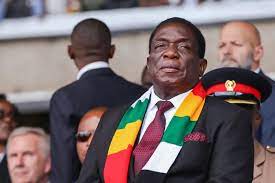Zimbabwe’s Economy Through the Lens of the English Premier League
Zimbabweans follow the English Premier League football with a passion, both men and women and the best way to explain the state of Zimbabwe’s economy is to present it from an EPL perspective. Zimbabwe’s economy has been a topic of concern for years, marked by hyperinflation, unemployment and a struggling country. The nation grapples with significant challenges, including a declining currency, high levels of poverty and rampant corruption. Many analysts argue that the root causes of these issues extend beyond government mismanagement, they also stem from a lack of accountability within the diaspora, which has largely distanced itself from the realities of their homeland.
Zimbabwe’s economy was once the breadbasket of Southern Africa, thriving on agriculture, mining and tourism. However, decades of political instability and poor economic policies have led to a sharp decline. The formal unemployment rate hoover around 90%, with many citizens forced into informal work to survive. Inflation, while somewhat stabilised, still affects the cost of living, leading to a daily struggle for many families.
The government’s attempts to revive the economy have often been met with scepticism. Policies such as the land reform program have been criticised for their execution, resulting in a decrease in agricultural productivity. The mining sector, although promising, suffers from a lack of investment and infrastructure challenges, which compounds the economic crisis.
While the Zimbabwean government bears significant responsibility for the economic situation, the diaspora also plays a crucial role. Many skilled professionals have left the country in search of better opportunities abroad, effectively creating a “brain drain.” This mass exodus has left Zimbabwe with a shortage of critical skills needed to drive economic development.
Using the analogy of the English football league, Zimbabweans abroad and at home can be categorised into various divisions:-
Premier League: This group consists of wealthy entrepreneurs who have successfully established themselves in other countries. They often invest in businesses and contribute to economies far removed from Zimbabwe, yet their potential to uplift their homeland remains largely untapped.
Championship: The professional elite, including doctors, engineers and other skilled workers, fall into this category. While they are successful abroad, many do not leverage their skills to help develop local industries or mentor those at home. Their absence from key sectors exacerbates the skills gap in Zimbabwe.
Division 1: This group is comprised of civil servants such as teachers, nurses, etc. Although they possess essential skills that could contribute to Zimbabwe’s recovery, many remain abroad, where they find better pay and working conditions. Their absence leaves critical sectors under-resourced.
Division 2: Here, we find musicians, students and those seeking opportunities. This group often migrates for better prospects but may lack the financial stability to invest back home, despite their potential to influence cultural and social change.
Division 3: This division comprises those who have not achieved their potential. Unfortunately, this group includes many of those currently in power in Zimbabwe. Their lack of ambition and innovation hampers growth, as they prioritise personal gain over national development.
The state of Zimbabwe’s economy is a complex interplay of mismanagement and the diaspora’s disengagement. As capable citizens have sought greener pastures, they have left behind a leadership that often lacks the vision and competence to effect meaningful change. For Zimbabwe to revive its fortunes, both the government and the diaspora must take responsibility. The diaspora can leverage their skills and resources to support local initiatives, while the government must commit to transparent governance and economic reform. Only through collaboration and accountability can Zimbabwe hope to reclaim its place as a thriving nation.
Engineer Jacob Kudzayi Mutisi



